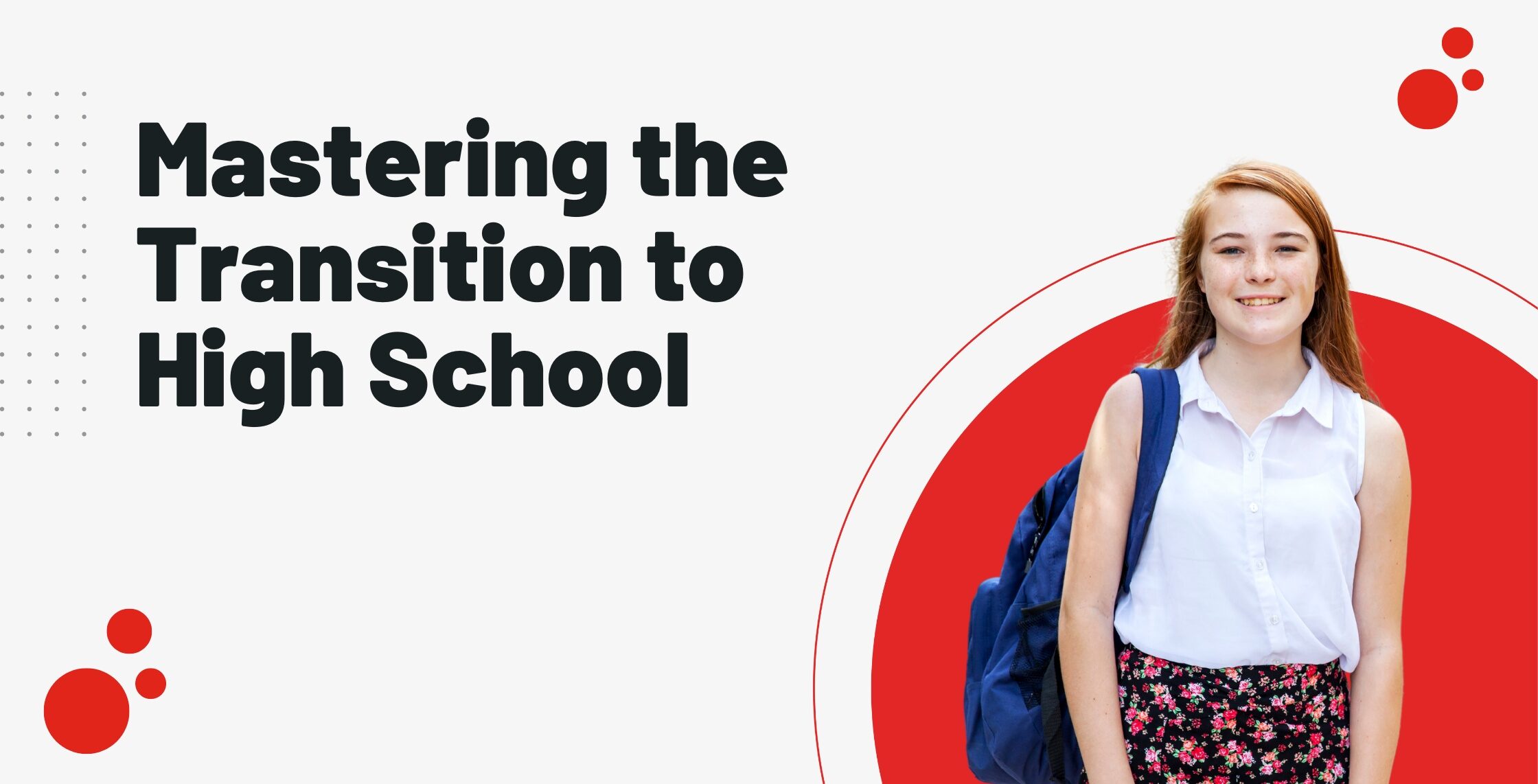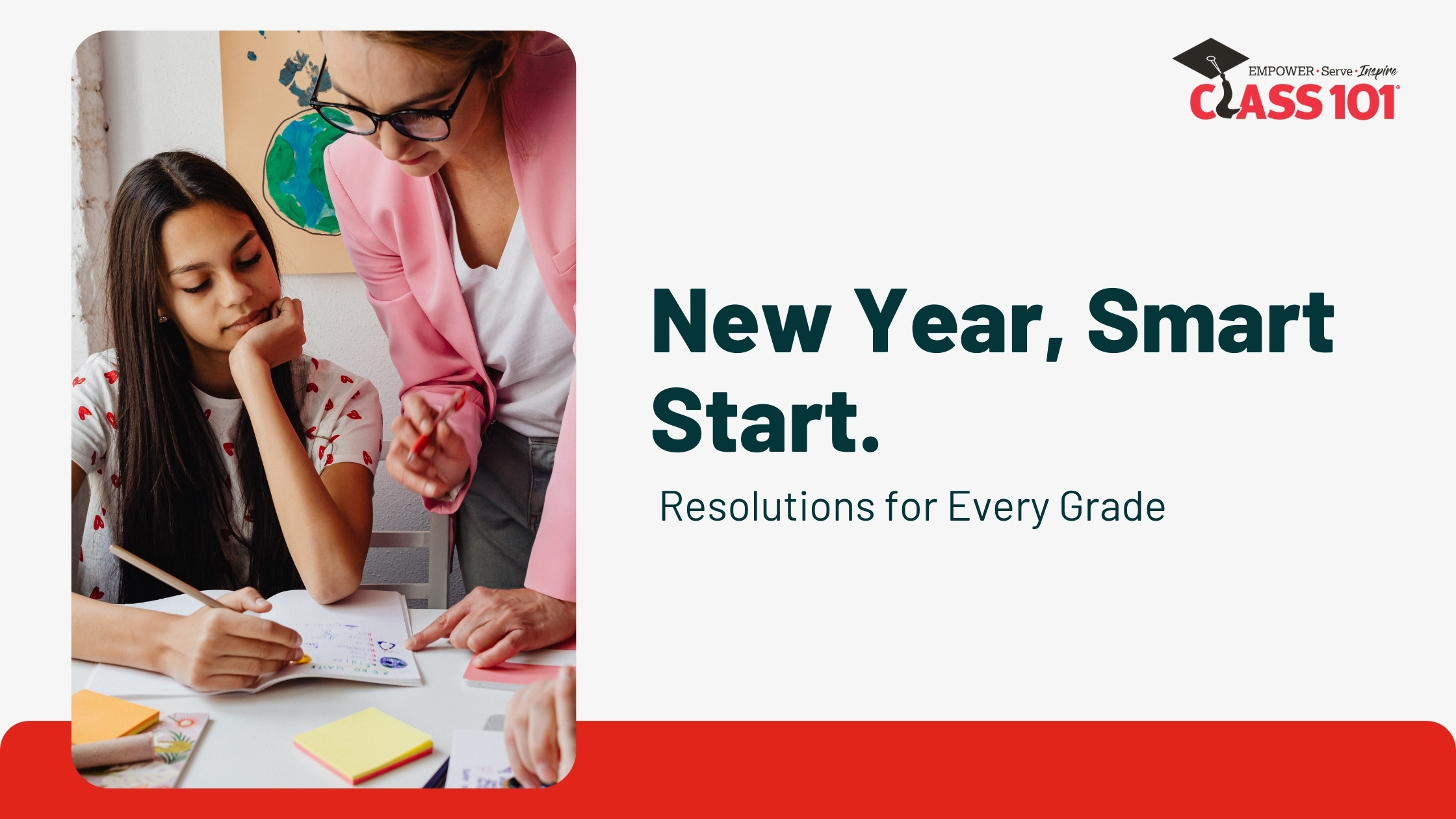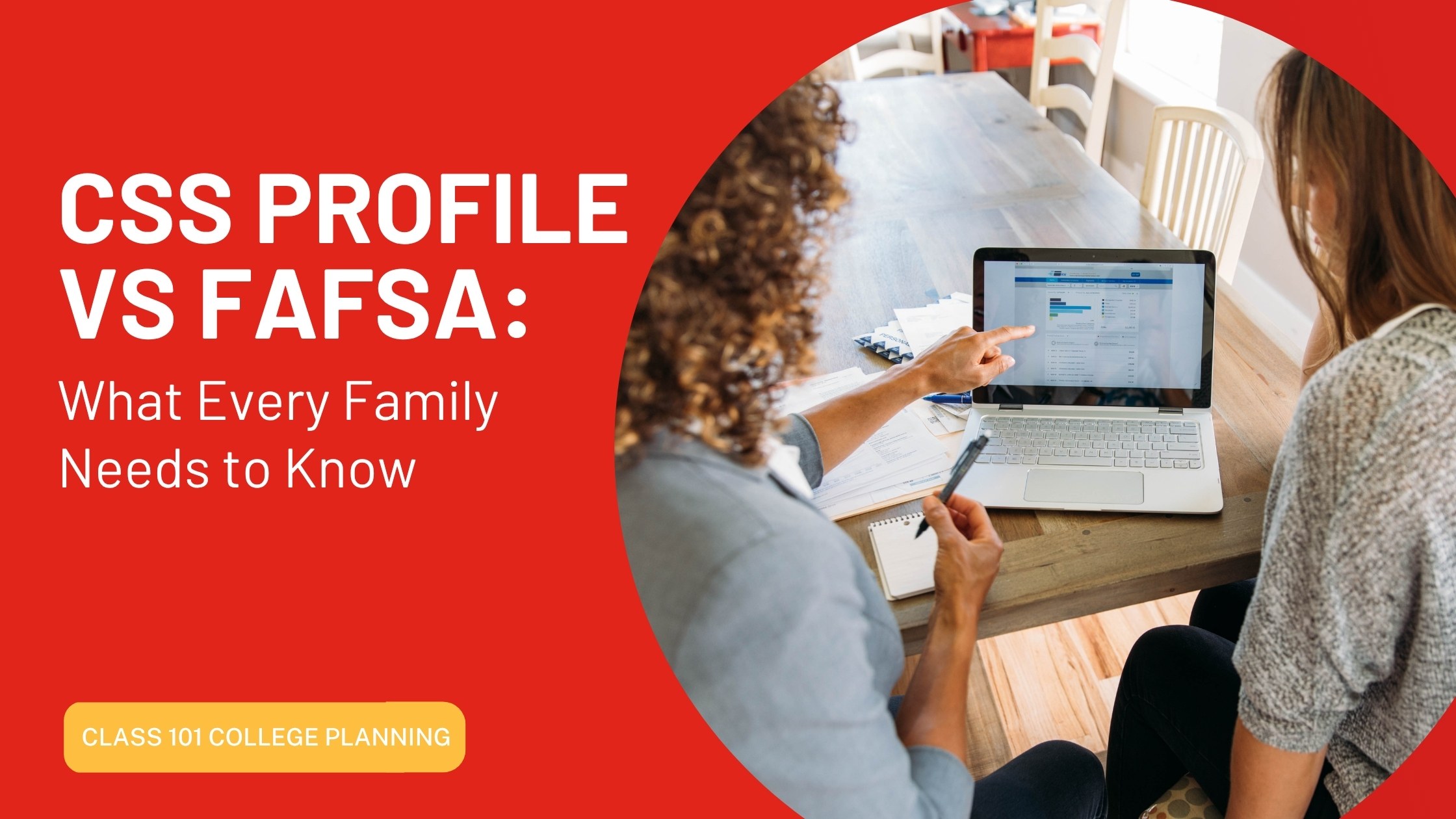May 21, 2024

School’s out for summer! That means that students are—at long last—getting a well-deserved break from classes and a chance to get ready for the next year of their studies. For some students, the transition is bigger than others. For those graduating from the 8th grade, this summer marks a big transition into high school where they will likely meet new students and new teachers and discover new opportunities.
While Class 101 works with students to make the college application process easy and affordable, we know that a successful high school career sets the stage for a successful college journey. Our advisors have worked with countless students and, in that time, have come to understand the ways students can make high school easier for themselves and their families.
In this blog, we’ll go through three of those tips so you can know how to start high school strong.
Summer is a time of relaxation, a time to take a break from academic responsibilities to pursue other interests and needs.
Every student is entitled to a vacation of some kind. However, the eight to ten week break can also be an opportunity to try new activities, to explore hobbies and interests to see what might be fulfilling. Depending on what their school offers, students might be able to pursue that in their classes or extracurriculars during the upcoming year.
Students might try different artistic hobbies such as photography, painting, or drawing—using the time to develop their abilities outside the confines of the classroom and at their own pace. They might try to get ahead with reading, picking up books from the local library that they might read in the new year or that can otherwise expand their horizons. The summer could also be a chance to try sports, if a student has ever wanted to do so on a casual basis without having to worry about try-outs.
Summer can also be a time to try new obligations. Students might volunteer as a way of supporting their community and understanding their role in it. We suggest trying to reach out to worship centers, community-based organizations, and others to see what they might have available for students entering high school.
A second important way to get ready is to understand the differences between middle school and high school.
The changes can be big, depending on where a student went to middle school. Class sizes can be far bigger, with more kids, many of whom students might be unfamiliar with. There is likely to be a larger workload, meaning that students will have to put in more effort to excel. It might be hard to leave homework until the last minute.
But the biggest change in high school is a newfound sense of independence. While there are teachers, advisors, and others who are present to help students along their journey, high school is the start of when students are more responsible for their own success than anyone else. They will have to study. They will have to make choices about what classes they take. Their grades will have a major impact on their future opportunities.
We suggest that students look at the importance of time management and take the summer as an opportunity to get themselves more organized. They might also look at the grading scheme at their new school to make sure they understand the criteria they will be assessed on and what they need to achieve.
Summer can also be an opportunity to work with parents or a Class 101 advisor to think about a long-term academic plan. Students can look at courses they want to explore, how they can balance electives and core courses, and the AP/Honors courses they want to attend. Getting input from those who have gone through these classes before can be immensely valuable.
Finally, it’s crucial for students to spend the time before the summer building a support network for themselves. As previously mentioned, high school can be a time of new challenges, but it is important that students do what they can to promote their own wellness.
By developing real, human relationships, students can make themselves more resilient. They can form the bonds needed to get help in their classes in the upcoming year and overcome obstacles in their personal lives. The bonds they form can last for a lifetime and prove critical in forming an identity.
We encourage students to participate in clubs, sports, and other extracurricular activities to meet people and to help live a mentally and physically healthy lifestyle. We also encourage students to think of ways they might develop positive relationships with their teachers and peers, acting on opportunities when they arise.
Most importantly, we encourage students to ask for help. Students are responsible for their own success in high school but that doesn’t mean that others cannot help them on the journey and help shoulder their burdens.
***
These are just a few of the tips that we recommend from our experiences with countless students across the country. For more specialized and personalized advice, we suggest you reach out and schedule a meeting with your Class 101 college advisor today.Several of our offices offer High School Prep 101, which empowers middle schoolers for high school success.

December 8, 2025
The end of the year is upon us. Aside from holly jolly celebrations and reflections on the year before, this time is a great chance for renewal. It is a chance to start fresh and set new routines, New Year’s resolutions, that can set students up for success when they apply for college. These resolutions […]
Read More >
October 10, 2025
Senioritis. The senior slump. Slacking disease. There are many names for it, but it’s a tendency almost everyone is familiar with: As students approach the end of their high school career, they feel a decreased sense of motivation. Their grades slide. They stop participating in extracurriculars. It’s an understandable tendency. After months, if not years, […]
Read More >
September 22, 2025
Between tuition, books, meal plans, and dorm rooms, college can be an expensive proposition. On average, students pay $38,270 for college. That number can raise up to $58,628 per academic year for students attending private universities. Given these expenses, it’s no wonder that families look for every opportunity to cut costs. In this blog, we’ll […]
Read More >